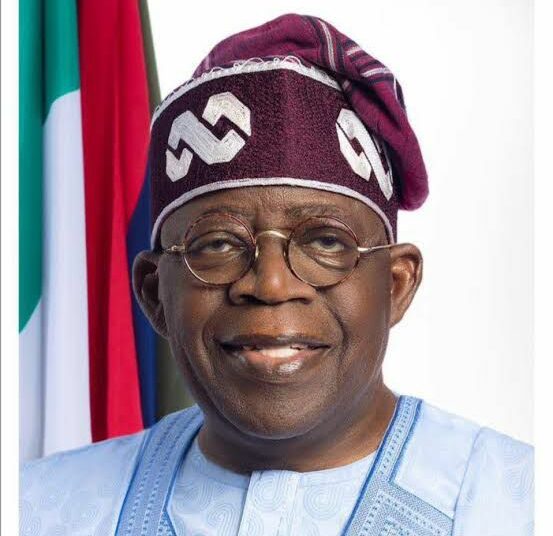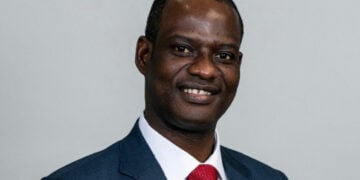On Thursday, the administration of Bola Tinubu completed its first month in office. It has been a whirlwind. When Tinubu promised Nigerians during the campaigns that he would hit the ground running, not many people took him seriously.
However, events of the last month have shown that the president has indeed hit the ground running and flying.
Firstly, on Inauguration Day, the president made the now famous pronouncement, “subsidy is gone.” Immediately after the president made that statement, fuel queues resurfaced across the country. As expected, fuel prices have skyrocketed, and prices of goods and services in the country have also risen astronomically.
The president has also unified the foreign exchange rate, which he claims was to save the country from financial hemorrhage. Tinubu said he made the decision in the nation’s best interest, just like he did with fuel subsidy removal.
He has met with different interest groups, ranging from governors, traditional rulers, students, and oil marketers, persuading them about the need to remove the fuel subsidy and outlining the plans of his administration.
The president has also been on a suspension spree. He has suspended the Central Bank Of Nigeria (CBN) governor, Godwin Emefiele, and the chairman of the Economic and Financial Crimes Commission, Abdulrasheed Bawa, from office.
Furthermore, the president has approved the immediate retirement of all Service Chiefs and the Inspector-General of Police, as well as their replacements with immediate effect.
The new service chiefs are Chief of Defence Staff, Lucky Irabor; Chief of Army Staff, Farouk Yahaya; Chief of Naval Staff, Awwal Gambo; Chief of Air Staff, Isiaka Amao; and the Inspector General of Police, Usman Alkali.
Additionally, Mallam Nuhu Ribadu has been redesignated as the National Security Adviser (NSA).
The president has also approved the immediate dissolution of the Governing Boards of all Federal Government Parastatals, Agencies, Institutions, and Government-Owned Companies, exercising its Constitutional Powers in the Public interest.
Moreover, the president has appointed eight Special Advisers out of the 20 approved for him by the 9th Senate last week.
The president embarked on his first foreign trip to Paris, France, for the New Global Financial Pact summit. The two-day Summit, hosted by French President Emmanuel Macron, aimed to reposition the global financial architecture to support less developed countries dealing with debilitating debt, struggling through energy transitions, and still reeling from the effects of climate change and Covid-19.
He had a successful outing in France, where he met with French President Macron at the Elysée, President of Switzerland, Alain Berset, at Palais Brongniart, President of Benin Republic, Patrice Talon, Director-General of the World Trade Organization, Dr Ngozi Okonjo-Iweala, President of the African Development Bank, Dr Akinwunmi Adesina, President and Chairman of the Board of Directors of African Export-Import Bank (Afrexim), Prof. Benedict Oramah, and President of the European Bank for Reconstruction and Development (EBRD), Odile Renaud–Basso.
The President also held meetings with Laurent Rahul Domergue, Senior Vice President of Airbus/ATR, Public Affairs, to discuss aviation matters, and he also met with the Nigerian community in France.
After France, he traveled to London for a private visit before returning to Nigeria for the Eid al-Adha celebrations in Lagos. The president used the opportunity to strengthen his base in the southwest by meeting with the Paramount ruler of Ijebuland, Oba Sik iru Adetona, in Ijebu-Ode, and the Alake of Egbaland, Oba Adedotun Gbadebo, in Abeokuta, during a thank-you visit to the Royal Fathers.
Similarly, Vice President Kassim Shettima embarked on a similar visit in his base in the north. For the Sallah homage, he visited the Shehu of Borno and the Sultan of Sokoto.
Undoubtedly, it has been an eventful month, and Nigerians expect palliatives and an improved economy in the shortest possible time to cushion the effects of the removal of fuel subsidy.
Overall, within just 30 days, the Tinubu administration has implemented significant changes and taken bold steps in various sectors. The removal of fuel subsidy and unifying the foreign exchange rate have had immediate consequences on the cost of living and the economy as a whole. The suspension of key officials, retirement and replacement of Service Chiefs and the Inspector-General of Police, and the dissolution of Governing Boards demonstrate the administration’s commitment to restructuring and reforming various institutions.
As the administration moves forward, it faces the immense task of delivering on its promises, particularly in providing palliatives and driving economic growth. The removal of fuel subsidy has brought immediate challenges, and it remains to be seen how the administration will navigate these issues and ensure that Nigerians do not bear the brunt of the rising costs.
Nigerians eagerly anticipate the next steps of the Tinubu administration and hope for tangible improvements in their daily lives as the president’s vision and policies unfold in the coming months.











